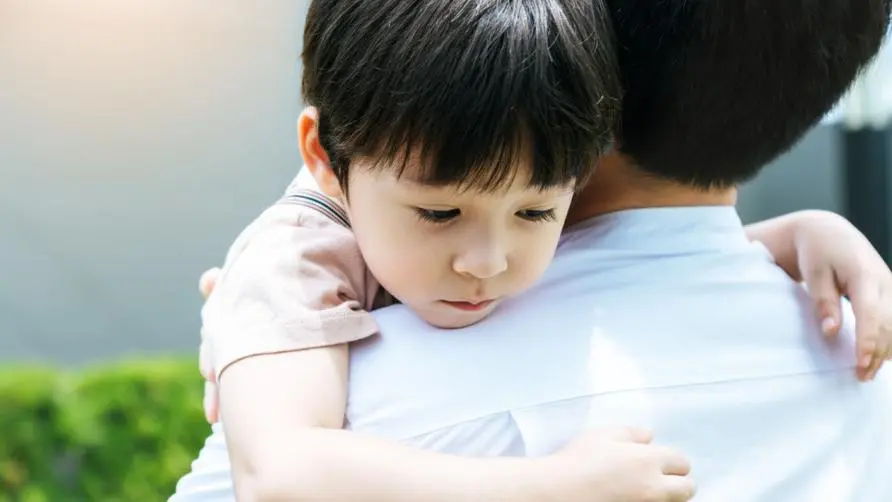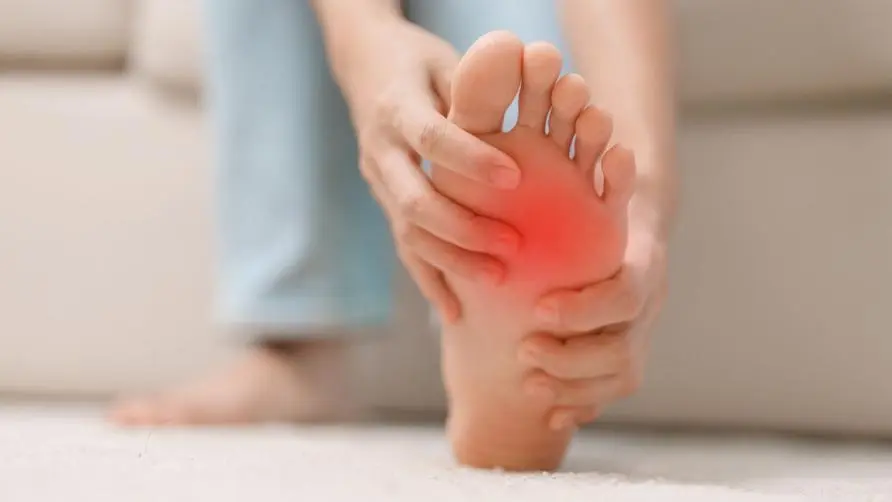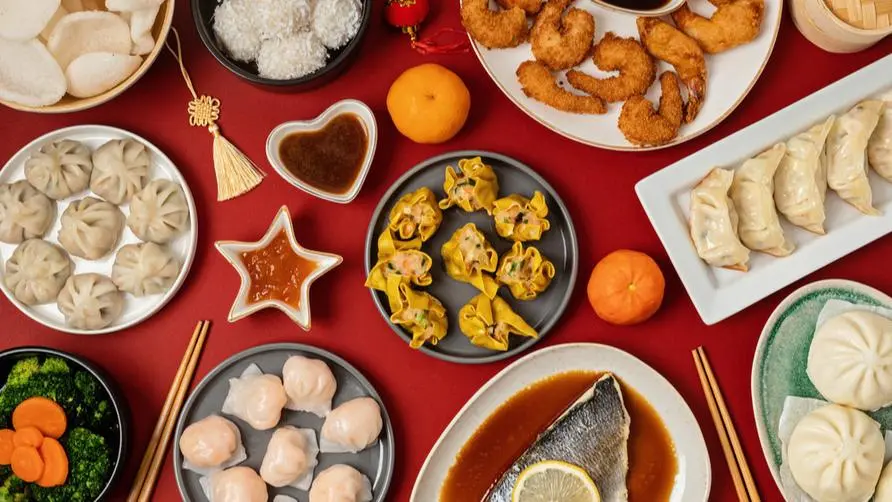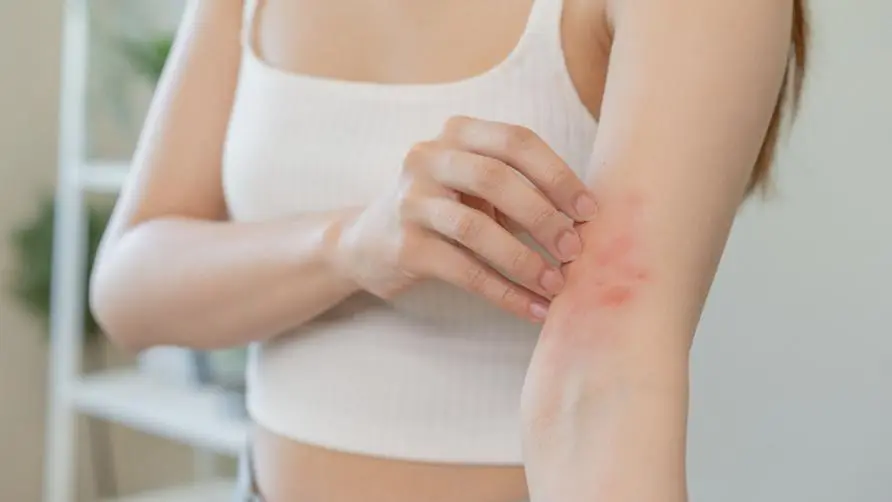Is it really a "weight loss nightmare" during the Chinese New Year? Nutritionists urge: Remember to avoid the "10 sinful foods" when you see them

Is all the New Year’s dishes that are super fat a “weight loss dieter’s nightmare”? Remember to avoid “Top 10 Sinful Foods” when you see them
This weekend coincides with the Chinese New Year, and many people want to take this opportunity to relax and reunite with family and friends. However, for those who are trying to lose weight or manage their weight, seeing their weight soar from eating at New Year’s Eve parties to sitting around the New Year’s fire can be described as “a nightmare.” Nutritionist Zhang Yuxi said that whether it is New Year’s Eve dishes, reunion dinners, or snacks commonly eaten by people during the Chinese New Year, they all contain extremely high calories. Excessive intake is indeed very detrimental to weight loss.
Nutritionist Zhang Yuxi pointed out that during the Chinese New Year, there are common foods that are prone to “burning calories”, such as seafood, mullet roe, hot pot, and even snacks such as peanut candy, jerky, shredded squid and pastries that are commonly found on the New Year’s table. Doubts about exceeding the daily caloric intake; if combined with alcohol or sugary drinks, the excess calories are more likely to form fat and cause obesity.
Therefore, nutritionist Zhang Yuxi emphasizes that during the Chinese New Year, you should avoid eating and drinking all at once, and you should be more conscious about your dietary intake. In particular, the following 10 foods are relatively high in calories. Eat them in moderate amounts and in small amounts, and pay attention to the principle of substitution:
Nuts and seeds: melon seeds (105 calories), pistachios (120 calories), peanuts (112 calories), each with one tablespoon (15-20 grams) of calories. Nuts and seeds are fats and oils. They are rich in good oils “Omega-3 fatty acids”. Taking a tablespoon in moderation is really good for cardiovascular health. However, during the Chinese New Year, when you eat smoothly while watching TV, it is easy to ignore the portion size and calories and eat without realizing it. Therefore, avoid eating a large handful directly, but place it on a small plate before eating.
Mullet roe: about 3 slices (20 grams), 50 calories. Mullet roe is high in calories, so it is recommended to eat it with radish and green onions to increase dietary fiber intake. In addition, mullet roe has high cholesterol, so it is recommended that people with high cholesterol or obesity should consume it in moderation.
Seafood: It is recommended to consume low-fat seafood such as white pomfret, white shrimp, and clams. Avoid deep-sea fish and large fish, such as tuna and swordfish. The fat in the body can easily accumulate heavy metals, so it is better to eat less.
Alcohol: about 360 ml of beer (1 aluminum can), about 120 ml of cocktails, and about 30 ml of spirits (1 shot). Alcohol should be taken in moderation. People who tend to blush after drinking should drink as little as possible. Because of their inherent lack of tolerance to alcohol, the toxic substance “acetaldehyde” is easily accumulated in the body, resulting in an increased risk of cancer.
Cakes: carrot cake (100 kcal/piece), fat cake (140 kcal/60g piece), brown sugar cake (140 kcal/60g piece). The calories of two pieces of cake are equivalent to a bowl of rice. It is recommended that if you eat them during meals, you need to reduce the consumption of staple foods such as rice noodles and rice.
Rice cake: sweet rice cake (70 calories/piece), fried rice cake (about 120 calories/piece). Nutritionists suggest: It is recommended to eat 2 pieces per meal, and steam instead of frying. In addition, it is not recommended to eat it with other cakes such as carrot cake, steamed cake or brown sugar cake, otherwise it will easily lead to excess calories.
Traditional snacks: Peanut Candy (80 calories/piece), Mao (50 calories/piece), Cunzao (14 calories/piece). Nutritionists suggest: The above snacks are high in calories. It is recommended that you choose low-calorie scallops and konjac when you are craving for food, or you can supplement your fiber intake with dried or fresh fruits.
Hot pot ingredients: fried bean curd (95 calories/piece), hundred-page tofu (91 calories/piece), rice blood cake (66 calories/piece). Many people have the custom of eating hot pot during the Chinese New Year. High-calorie hot pot ingredients should be eaten less or completely avoided; the soup base should be avoided from spicy pot or milk pot with higher calories, and should be made with kelp or tomato pot. and other natural ingredients as the base, and use prototype foods such as vegetables and seafood as the main hot pot ingredients.
Dried meat. Beef jerky (about 112 calories/piece), pork jerky (about 110 calories/piece). Due to high calories, added preservatives, and high sodium, you should mainly consume 4 tablets at a time, and be careful whether the sodium content exceeds the standard.
Shredded squid. Shredded squid (100 calories/box), shredded cod (70 calories/box). Nutritionist advice: Limit the amount of food consumed at one time to half a bowl, and try to choose food with less salt and chewy texture.
From New Year’s Eve to New Year’s Eve, my weight has “crazily increased”? 5 things you can do to stay in shape
As for the company-sponsored party at the beginning of the year, or the fireside party when gathering with relatives and friends during the Chinese New Year, if you keep eating one platter after another, the number on the scale will easily start to “explode”. Nutritionist Yu Zhuqing said that gathering with relatives, friends and colleagues is a joyful event, and called on the public not to be overly anxious about it. They can keep the following five points in mind so that they don’t have to worry about taking in too many calories during this period:
Treat it like a happy meal. Think of dinner gatherings as a weekly happy meal, and it’s best to limit it to just once a week. Nutritionist Yu Zhuqing pointed out that just like when providing weight loss dietary advice in the clinic, a happy meal once a week is more appropriate. It is also important to relax and enjoy the food.
Avoid gorging. Spend more time chatting with friends you haven’t seen for a long time during dinner parties to avoid wolfing down food as soon as you sit down, which can lead to unknowingly eating too much food. Chatting with friends can not only help slow down your eating speed, but also increase your feeling of fullness.
Pair with sugar-free drinks. Drinks are inevitable at dinner parties. People can consciously choose sugar-free drinks such as tea and sparkling water, or just drink boiled water. If you don’t like tasteless plain water, you can also try adding some lemon or orange slices to increase the flavor.
Remember to drink in moderation. Alcohol is actually a source of high calories during dinner parties. Although drinking and chatting with friends is one of the great pleasures in life, people who are in the weight control stage mainly drink alcohol. A glass of wine of about 150ml or a bottle of beer of 330ml has more than 100 calories; whiskey and Alcoholic beverages with higher alcohol concentrations, such as sorghum, will also have higher calories.
Maintain the total amount principle. If you already know that there will be a party that day, you may wish to adjust the contents of the other three meals in a timely manner. For example, if there is a party at noon, you may not be too hungry in the evening. You can eat lettuce salad with sous vide chicken breast and other meals to eat throughout the day. Even if the total calories exceed the standard, there will not be a heat explosion.
Further reading:





